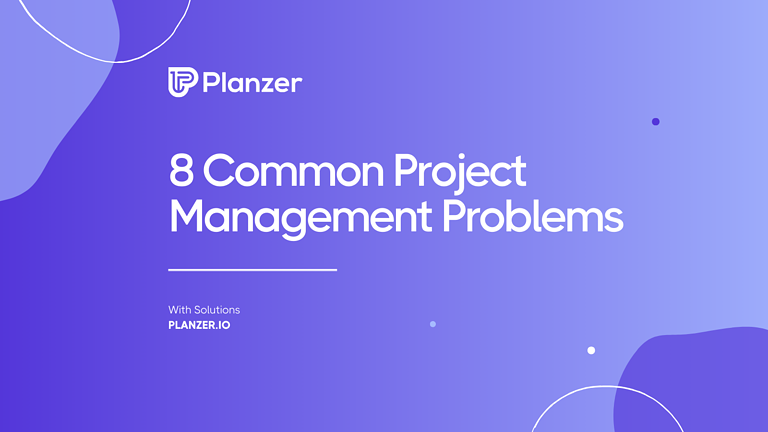Do you often find yourself struggling to focus at work? You’re not alone.
Many people face challenges when it comes to concentrating on tasks, which can affect productivity and overall work performance.
In this blog, we will explore the reasons behind the lack of focus at work and provide practical solutions to help you regain your attention and focus.
Understanding the Reasons Behind Lack of Focus at Work
If you frequently find yourself unable to focus, it’s essential to understand the underlying reasons for this difficulty. Let’s delve into some of the common factors that can hamper focus in the workplace.
The Role of Fatigue and Sleep Deprivation in Hampering Focus
Lack of sleep can significantly impact your ability to focus at work. When you don’t get enough rest, you may experience brain fog, decreased attention span, and diminished mental acuity.
Furthermore, sleep deprivation fatigue can affect brain cells’ functionality, making it even more difficult to concentrate on tasks. Lack of sleep has also been linked to anxiety disorder, which can further contribute to difficulty focusing.
To improve sleep quality, consider incorporating supplements like melatonin, practicing good sleep hygiene, and establishing a consistent sleep schedule.
The Impact of Multitasking and Overwork on Concentration
In today’s fast-paced work environments, multitasking has become the norm. However, constantly switching from one task to another can hinder your ability to effectively focus on a single task. It divides attention, leading to decreased productivity and increased errors.
Additionally, overworking can lead to burnout, affecting focus and overall work performance. To improve focus, try to minimize multitasking as much as possible and prioritize tasks to avoid feeling overwhelmed. Taking short breaks between tasks can also help prevent burnout and enhance focus.
Exploring the Effects of Stress and Overwhelm on Work Focus
Stress and feeling overwhelmed can significantly impact your ability to concentrate at work. When you’re under stress, adrenaline spikes can impede focus, making it difficult to stay on task.
Conditions like anxiety disorder can further exacerbate difficulty concentrating, affecting work focus. To manage stress, consider incorporating mindfulness practices, engaging in regular physical activity, setting boundaries, and learning to say no to work-related tasks that may contribute to stress.
A healthy work-life balance is crucial for maintaining focus and overall mental well-being.
The Consequences of Disinterest and Lack of Motivation
Disinterest in work tasks can be a significant contributor to difficulty focusing.
Lack of motivation can hinder work focus and productivity, making it challenging to stay engaged and complete tasks efficiently. If you lack motivation first thing in the morning, it can impact your work focus throughout the day.
To address disinterest and lack of motivation, try making tasks more engaging, breaking tasks into smaller, manageable chunks, and setting clear goals to stay motivated and focused.
Time Management Struggles and Their Influence on Focus
Poor time management can have a significant impact on work focus.
When tasks are left until the last minute, it creates unnecessary stress, making it difficult to concentrate effectively. Parkinson’s law states that work expands to fill the time available and can contribute to procrastination, further affecting focus.
To improve time management and maintain focus, try utilizing time-blocking techniques, limiting distractions such as social media, setting clear deadlines and goals, delegating tasks when possible, and utilizing task management apps or tools to streamline your schedule.
Identifying External Factors that Affect Focus
Now that we’ve explored some internal factors that can impact focus let’s shift our focus to external factors that might influence your inability to concentrate at work.
The Detrimental Effects of Constant Distractions
Constant distractions, such as notifications from cell phones, email, and social media, can significantly hinder work focus.
These distractions pull attention away from tasks, making it difficult to concentrate effectively.
Consider implementing strategies to minimize distractions, such as turning off notifications, creating a work-friendly environment, and utilizing the Pomodoro technique, which involves working in short bursts of focused time, followed by short breaks.
How Personal Life Demands Can Disrupt Focus
Balancing personal life demands with work tasks can add another layer of difficulty when focusing.
Juggling personal and work responsibilities can make concentrating solely on work tasks challenging, leading to difficulty concentrating effectively.
To address this, consider finding time management strategies that work for you, communicating your needs and boundaries with others, and seeking support when necessary to manage personal and work demands.
The Role of Health Conditions in Disturbing Concentration
Certain health conditions, such as ADHD, anxiety disorder, or other mental health conditions, can significantly impact work focus.
These conditions can make it difficult to maintain attention span, focus on tasks, and stay engaged throughout the workday. Suppose you suspect that a health condition is affecting your ability to focus.
Consulting with a healthcare professional for an accurate diagnosis and appropriate management strategies may be helpful in that case.
Practical Steps to Regain Your Focus at Work
Now that we’ve explored the reasons behind the lack of focus, let’s focus on practical steps you can take to improve your work attention and concentration.
The Importance of Adequate Rest and Nutrition
Proper sleep hygiene and balanced nutrition are essential for mental acuity and focus.
Lack of sleep can lead to attention span and focus issues, while nutrient-rich foods support brain health and cognitive function.
Additionally, staying hydrated is crucial for overall brain function, including focus. Make sure to prioritize adequate rest, maintain a healthy sleep schedule, eat a balanced diet, and stay hydrated to enhance focus and energy levels at work.
Strategies for Effective Stress Management
Stress management plays a significant role in improving focus at work.
Practicing mindfulness techniques, engaging in regular physical activity, setting boundaries, taking short breaks, and establishing a healthy work-life balance can all help reduce work-related stress, ultimately enhancing focus and productivity.
Tips for Efficient Time Management and Task Prioritization
Effective time management and task prioritization are crucial for maintaining focus.
Utilize time-blocking techniques, limit distractions, set clear goals and deadlines, delegate tasks when possible, and utilize task management apps or tools to streamline your schedule.
These strategies can help you stay organized, work efficiently, and maintain focus on tasks.
The Benefits of Regular Exercise for Improved Focus
Regular exercise has numerous benefits, including improved focus.
Engaging in physical activity boosts energy levels, releases endorphins, reduces stress, and supports overall brain health and focus. Incorporating regular exercise into your routine can enhance attention span, mental clarity, and work focus.
Engaging in Continuous Self-Improvement for Better Focus
Continuous self-improvement is a valuable tool for enhancing focus at work.
Adopting a mindset of continuous learning, setting personal and professional development goals, seeking feedback, embracing new challenges, and engaging in activities that promote mental well-being can all contribute to improved focus and work performance.
How have these tips improved your focus at work?
We’d love to hear about your experience with implementing focus-improving strategies!
Share your success stories, challenges encountered, and insights from incorporating focus-enhancing techniques. Your experiences may inspire others who are facing similar focus challenges at work.
Conclusion
In conclusion, maintaining focus at work is essential for productivity and overall professional success.
Understanding the reasons behind a lack of focus, such as fatigue, multitasking, stress, disinterest, and time management struggles, can help you address and overcome these challenges.
Identifying external factors that affect the focus, including constant distractions, personal life demands, and health conditions, is crucial in finding solutions.
Taking practical steps such as getting adequate rest and nutrition, managing stress effectively, prioritizing tasks, and exercising regularly can significantly improve your focus at work.
Remember, continuous self-improvement is key to enhancing your focus and achieving your professional goals. So, implement these strategies and witness their positive impact on your work performance.
FAQ
What is it called when you can’t focus on work?
The inability to focus on work is commonly known as “workplace distraction” or “lack of concentration.”
This term encompasses various factors, such as stress, fatigue, distractions, and lack of interest, that can contribute to difficulty concentrating on tasks.
If you’re experiencing persistent difficulty focusing, consider seeking professional help or discussing it with your supervisor for support and guidance.
How do I focus on work when life is hard?
Maintaining focus at work can become even more challenging when life gets tough. Here are some tips to help you stay focused during difficult times:
– Recognize that it’s okay to take breaks and prioritize self-care.
– Break down tasks into smaller, more manageable chunks to avoid feeling overwhelmed.
– Minimize distractions by turning off notifications and creating a work-friendly environment.
– Practice mindfulness techniques, such as deep breathing or meditation, to calm the mind and increase focus.
Why am I unable to focus on a task?
Difficulty focusing on a task can stem from various factors, including lack of sleep, stress, distractions, lack of interest, health conditions, or medications.
To improve focus, consider setting goals, breaking tasks into smaller pieces, taking breaks when needed, and utilizing strategies for managing distractions.


![Task Management vs Project Management [Ultimate Guide]](https://planzer.io/wp-content/uploads/2023/06/Task-Management-vs-Project-Management-Ultimate-Guide-768x432.png)
